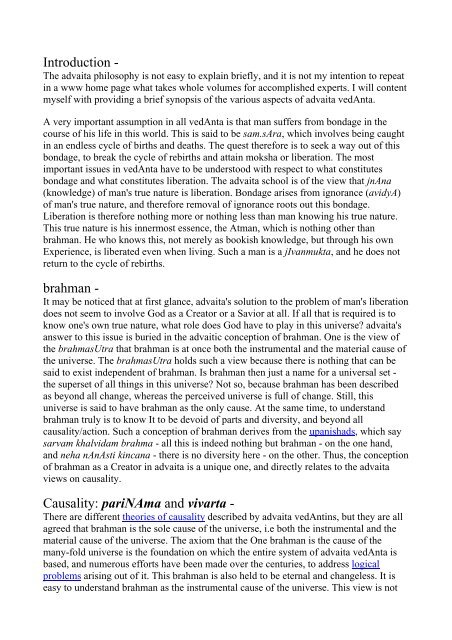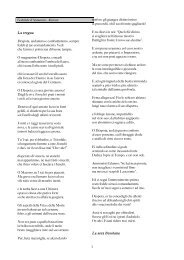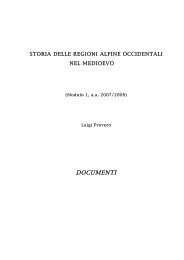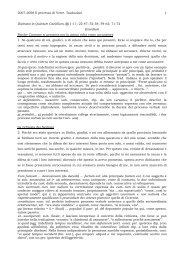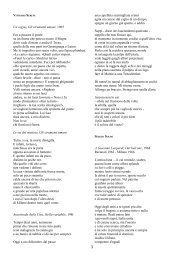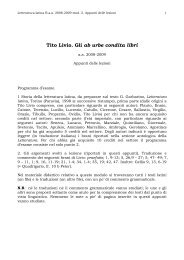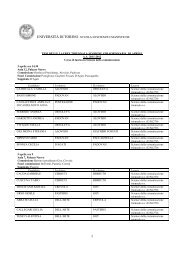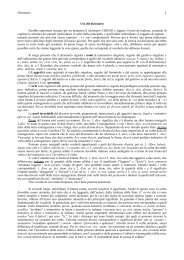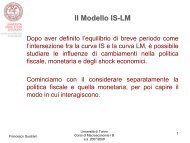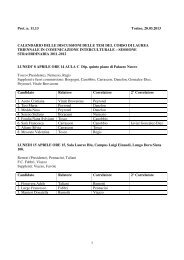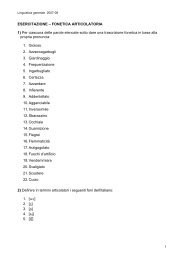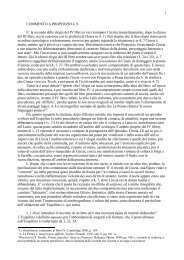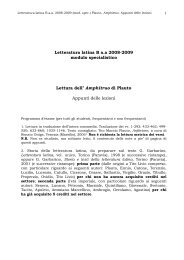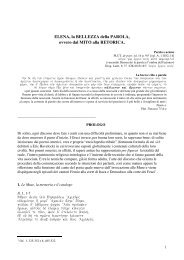ajAti vAda
ajAti vAda
ajAti vAda
You also want an ePaper? Increase the reach of your titles
YUMPU automatically turns print PDFs into web optimized ePapers that Google loves.
Introduction -<br />
The advaita philosophy is not easy to explain briefly, and it is not my intention to repeat<br />
in a www home page what takes whole volumes for accomplished experts. I will content<br />
myself with providing a brief synopsis of the various aspects of advaita vedAnta.<br />
A very important assumption in all vedAnta is that man suffers from bondage in the<br />
course of his life in this world. This is said to be sam.sAra, which involves being caught<br />
in an endless cycle of births and deaths. The quest therefore is to seek a way out of this<br />
bondage, to break the cycle of rebirths and attain moksha or liberation. The most<br />
important issues in vedAnta have to be understood with respect to what constitutes<br />
bondage and what constitutes liberation. The advaita school is of the view that jnAna<br />
(knowledge) of man's true nature is liberation. Bondage arises from ignorance (avidyA)<br />
of man's true nature, and therefore removal of ignorance roots out this bondage.<br />
Liberation is therefore nothing more or nothing less than man knowing his true nature.<br />
This true nature is his innermost essence, the Atman, which is nothing other than<br />
brahman. He who knows this, not merely as bookish knowledge, but through his own<br />
Experience, is liberated even when living. Such a man is a jIvanmukta, and he does not<br />
return to the cycle of rebirths.<br />
brahman -<br />
It may be noticed that at first glance, advaita's solution to the problem of man's liberation<br />
does not seem to involve God as a Creator or a Savior at all. If all that is required is to<br />
know one's own true nature, what role does God have to play in this universe? advaita's<br />
answer to this issue is buried in the advaitic conception of brahman. One is the view of<br />
the brahmasUtra that brahman is at once both the instrumental and the material cause of<br />
the universe. The brahmasUtra holds such a view because there is nothing that can be<br />
said to exist independent of brahman. Is brahman then just a name for a universal set -<br />
the superset of all things in this universe? Not so, because brahman has been described<br />
as beyond all change, whereas the perceived universe is full of change. Still, this<br />
universe is said to have brahman as the only cause. At the same time, to understand<br />
brahman truly is to know It to be devoid of parts and diversity, and beyond all<br />
causality/action. Such a conception of brahman derives from the upanishads, which say<br />
sarvam khalvidam brahma - all this is indeed nothing but brahman - on the one hand,<br />
and neha nAnAsti kincana - there is no diversity here - on the other. Thus, the conception<br />
of brahman as a Creator in advaita is a unique one, and directly relates to the advaita<br />
views on causality.<br />
Causality: pariNAma and vivarta -<br />
There are different theories of causality described by advaita vedAntins, but they are all<br />
agreed that brahman is the sole cause of the universe, i.e both the instrumental and the<br />
material cause of the universe. The axiom that the One brahman is the cause of the<br />
many-fold universe is the foundation on which the entire system of advaita vedAnta is<br />
based, and numerous efforts have been made over the centuries, to address logical<br />
problems arising out of it. This brahman is also held to be eternal and changeless. It is<br />
easy to understand brahman as the instrumental cause of the universe. This view is not


